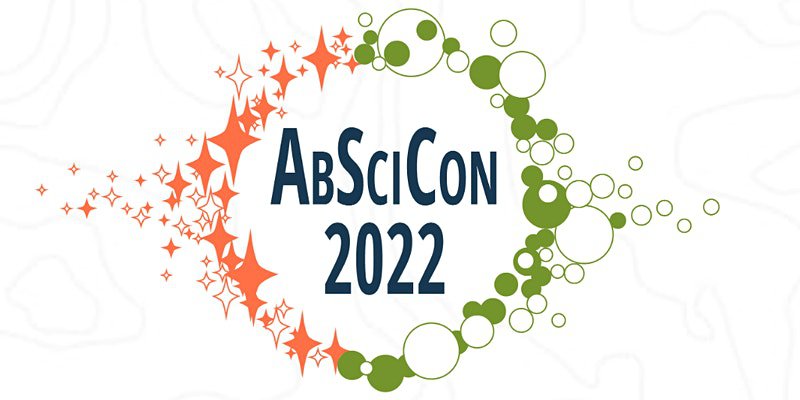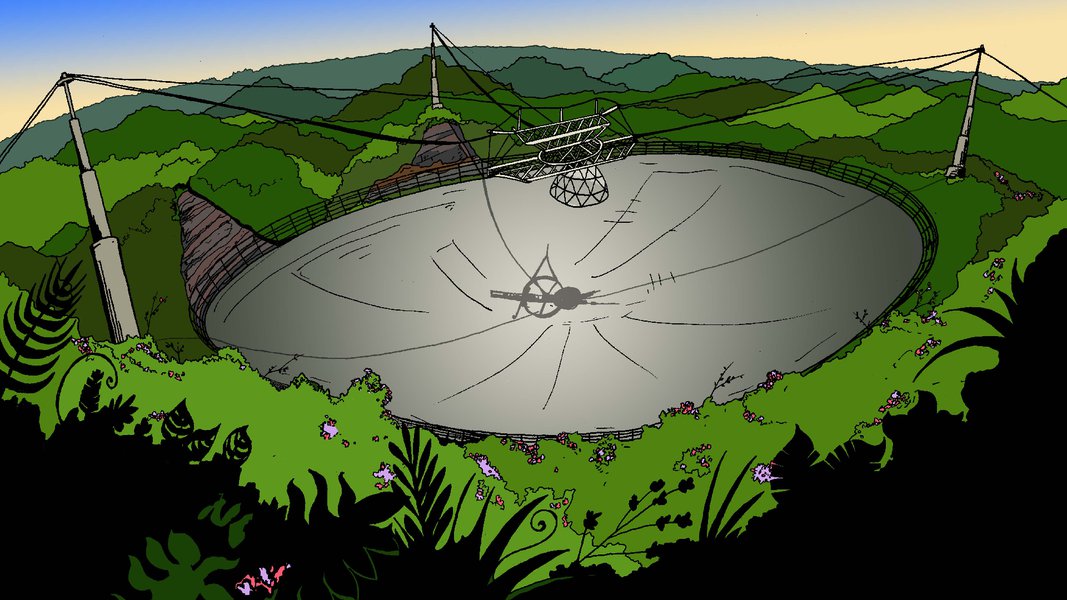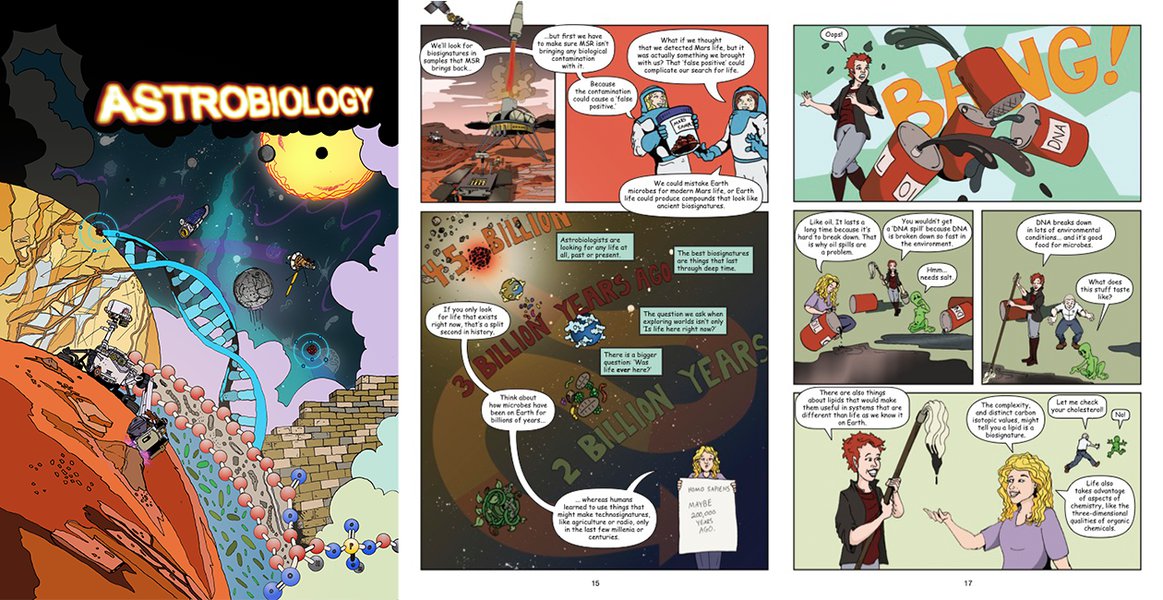Written byMichael Toillion

Origins & Exploration: From Stars to Cells!
#AbSciCon22
AbSciCon brings the astrobiology community together every two years to share research, collaborate, and plan for the future. Join NASA and the American Geophysical Union as we facilitate a robust gathering of scientists in Atlanta and online 15 – 20 May 2022.
If you would like to participate in AbSciCon, you can register for either in-person or virtual attendance. If you are not registered, you can still view the three public events listed below, as well as receive your virtual NASA Astrobiology Swag Bag.
Public Livestream Events
Panel Discussion: We Discovered Alien Life, Now What?
May 14th, 2022 at 7PM EDT
How will the media and their audiences respond to the discovery of evidence of extraterrestrial life? Will it be a galvanizing event, or a catastrophic paradigm shift? How long will it take for astrobiologists to prove that what they’ve found is real, and how will varying standards of evidence between science and journalism impact the global public’s response to this discovery? Who would you trust to tell you the truth? And what do we do with that truth, once we have it?
Our panel of experts for this program are Lisa Yaszek, professor of science fiction studies at Georgia Tech, where she researches and teaches science fiction as a global language crossing centuries, continents, and cultures; Andre Brock, Georgia Tech professor and leading scholar of Black cyberculture; and Tony Harris, broadcast journalist and host of the History Channel’s “The Proof is Out There.” This panel will be moderated by Caitlin McShea, InterPlanetary Project Director and Program Manager of an NSF-funded research coordination network on Life’s Origins, for the Santa Fe Institute.
These experts will offer their views on how we think about extraterrestrial life – imagined representations across fiction, microbial life in our solar system, and intelligent life beyond — and how we might respond to its discovery.”
NASA Astrobiology Town Hall
May 16th, 2022 at 6:30PM EDT
Dr. Mary Voytek, Director of NASA’s Astrobiology Program will present an update of activities within the program, new opportunities for funding (Interdisciplinary Consortia for Astrobiology Research, ICAR), and take questions from the community, with significant time for discussion. There will also be short presentations about the new Research Coordination Networks. The audience is expected to comprise current and potential investigators in Astrobiology’s or other NASA programs.
The Search for Life in the Universe with your Students!
Learn about the new Astrobiology Learning Progressions resource, a tool to help you teach about Life in the Universe at any grade level.
May 17th, 2022 at 7:00PM EDT
Link: Join this Virtual Session
Where did we come from? Are there other planets beyond Earth with life? Is there or has there been life elsewhere in our Solar System? These are some of the fascinating questions that the field of astrobiology seeks to understand. Students find astrobiology motivating, relevant, and exciting. Teachers like that it is interdisciplinary using skills and knowledge from all branches of science, math, and engineering and connects beautifully with art and writing. How can you learn more, get support, and find resources you need so you can bring this amazing content to your K-12 students? This no-cost session, presented by astrobiologists, Aaron Gronstal and Graham Lau; a current middle/high school teacher, Dani Leach; and moderated by Martha Grover, an Origin of Life Professor at Georgia Tech, will give you the support and resources that you can use to create exciting opportunities for students.
Keynote Presentation: Jovian Safari
May 19th, 2022 at 6:30PM EDT
Tracy Drain is a Systems Engineer at NASA’s Jet Propulsion Laboratory. Her interest in space grew from an early love of science fiction – she soaked up Star Trek, Star Wars, Battlestar Galactica, and various sci-fi books by the armload. She earned degrees in Mechanical Engineering at the University of Kentucky and Georgia Tech and landed a full-time position at JPL in 2000.
In her 20 years at the lab, she has participated in the development and/or operation of the Mars Reconnaissance Orbiter (a science/relay orbiter at Mars), the Kepler mission (an exoplanet hunter), the Juno mission to Jupiter and the Psyche mission (to study an asteroid). She is currently the Lead Flight Systems Engineer for the Europa Clipper mission, which is slated to launch in 2024 to explore one of the most scientifically exciting icy moons of Jupiter. Tracy relishes playing a role in helping scientists expand our understanding of the universe and loves sharing her passion for space with people of all ages.
Virtual Swag Bag
Virtual Meeting Backgrounds
To celebrate the release of the 8th issue of the Astrobiology Graphic History series, creator Aaron Gronstal has created a library of images from the series to use with any virtual meeting platform. Visit the Digital Backgrounds page to download them all and show up to AbSciCon’s virtual sessions in style!
Arecibo Observatory, illustrated by Aaron Gronstal. Click on the image to view and download all the NASA Astrobiology digital backgrounds.
Astrobiology Graphic History Series: Issue #8
Can’t get your printed copy of the 8th issue of Astrobiology in Atlanta? Grab the digital version today! Visit the Graphic Histories page to download all 8 issues of the series in PDF, ePub, or Kindle versions.
Sample pages from the 8th issue of the Astrobiology Graphic History series, illustrated by Aaron Gronstal. Click on the image to view and download all eight issues.


